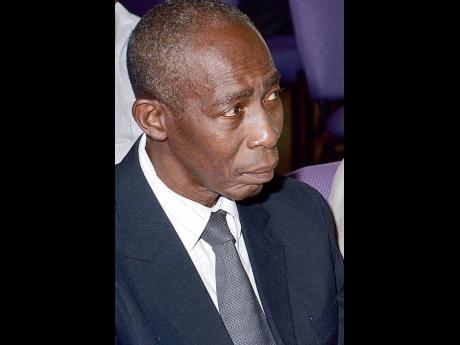Judge: We’re not boo-boos and dumb-dumbs
DPP, defence differ on format of hearing into good faith certificates in Clarke matter
Justice Vinette Graham-Allen is to rule on March 6 whether a preliminary hearing to determine the validity of the good faith certificates in the Keith Clarke matter is to be conducted independently of the murder trial which may follow.
During a plea and case management hearing on Tuesday in the Home Circuit Court, defence lawyers and Director of Public Prosecutions (DPP) Paula Llewellyn differed on the format that the hearing should take based on their respective interpretations of a Court of Appeal directive.
Clarke was reportedly shot 21 times inside his Kirkland Heights home in St Andrew on July 27, 2010, during a military operation.
Three soldiers – Corporal Odel Buckley, Lance Corporal Greg Tinglin, and Private Arnold Henry – were arrested and charged with murder and were to be tried.
However, the trial was stalled in 2018 after the defence surprised the Crown with certificates of immunity, which they claimed shielded the trio from prosecution.
The certificates were signed in 2016 by then Minister of National Security Peter Bunting, six years after Clarke’s death.
Clarke’s widow, Claudette, then challenged the validity of the certificates.
The Constitutional Court ruled in February 2020 that the immunity certificates were invalid, null, and void, and that the soldiers should stand trial.
The soldiers then sought to have the decision quashed by the Court of Appeal. But the nation’s second-highest court struck down the Constitutional Court ruling regarding the certificates but affirmed the decision that the soldiers should be tried.
The appeal court, however, ruled that a preliminary hearing similar to a voir dire – or a trial within the trial – must be conducted by a judge alone to determine whether the DPP can rebut the certificates of good faith issued by the minister.
The appeal court had also ruled that the Full Court erred in determining that the delay in issuing the certificates was manifestly unfair and unreasonable, and that, as a result, the soldiers should not be allowed to rely on them.
On Tuesday, the issue of the preliminary hearing was raised after Buckley’s lawyer, Peter Champagnie, KC, reminded the judge that the preliminary hearing must be held before the trial.
His colleague, Valerie Neita-Robertson, KC, who appears for Tingling, then emphasised that the court should instead focus on setting a date for that hearing.
She stressed that the hearing was not a voir dire and that it should be done before the trial and must be done by separate judges.
But the DPP disagreed.
Llewellyn said that her office believes that the preliminary hearing is proximate to the trial.
“So the judge would deal with the voir dire, and depending on what happens, goes to the trial, so it would seem to suggest that a trial date would need to be set,” she said.
Justice Graham-Allen, however, pointed out that her understanding is that the preliminary hearing would be done before the trial, which is after the trial date has been restored. She also disagreed that the matters should be dealt with by different judges.
Neita-Robertson, however, insisted that a separate judge should hear the matters if the ruling necessitates a trial.
She then pointed out that the defence is prepared to set an early date for that process, but the judge said that she is prepared to set a date for a ruling on their submissions as both parties had different interpretations.
“It’s not going to go like that. Submissions are laid – the DPP has an interpretation, the defence has an interpretation. You must hear from the court what the court rules,” she asserted.
Neita-Robertson then pointed out that it was not unheard of for the court to seek clarification from the Court of Appeal.
“Well, that is even better because you think I was going to sit down and deal with this myself? I am not like a boo-boo, and I seek guidance from my colleagues as well. That’s why we have judicial education among ourselves and we educate ourselves,” the judge responded.
“Just in case the public don’t know, I am making them know. Judges have judicial education and when we come up on things like these, we discuss [issues] with each other, just like how the defence meet to discuss, prosecutors meet and discuss. We [are] not boo-boos and dumb-dumbs,” she added.
The soldiers had reportedly gone in search of Christopher ‘Dudus’ Coke, the now-convicted Jamaican drug lord who is serving a sentence in a United States prison, when Clarke was reportedly killed.
Coke was the target of an islandwide manhunt after escaping a security dragnet inside his west Kingston enclave of Tivoli Gardens.
Attorney-at-law Linton Gordon represents Henry.

